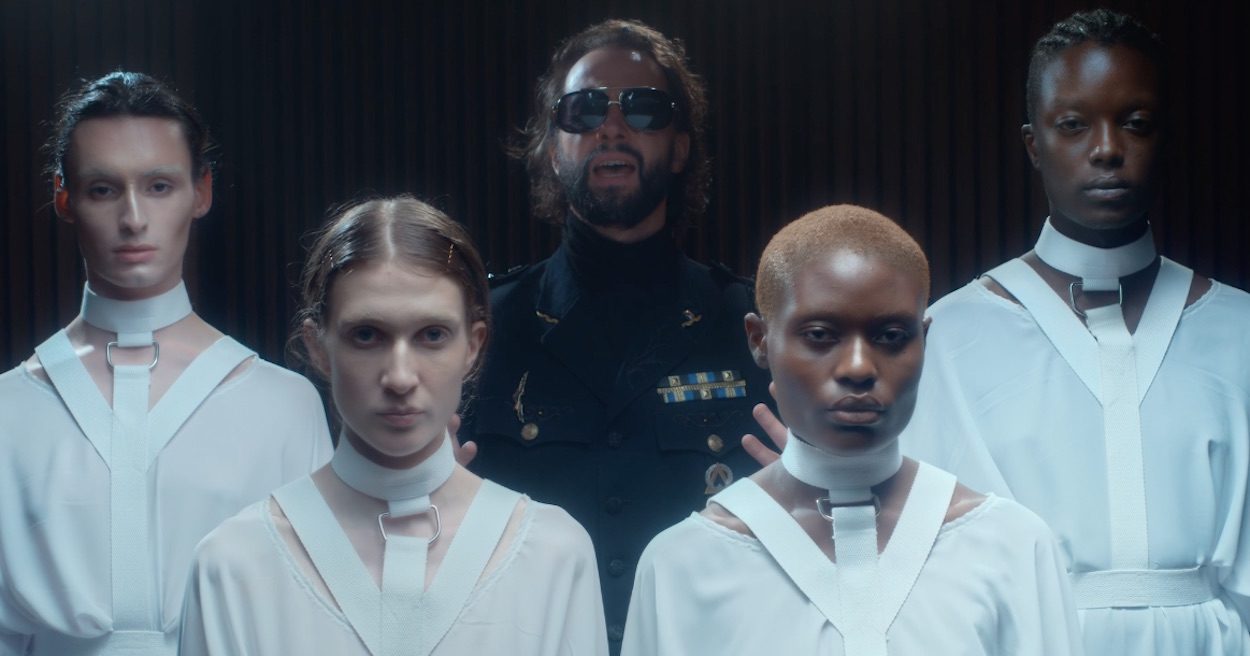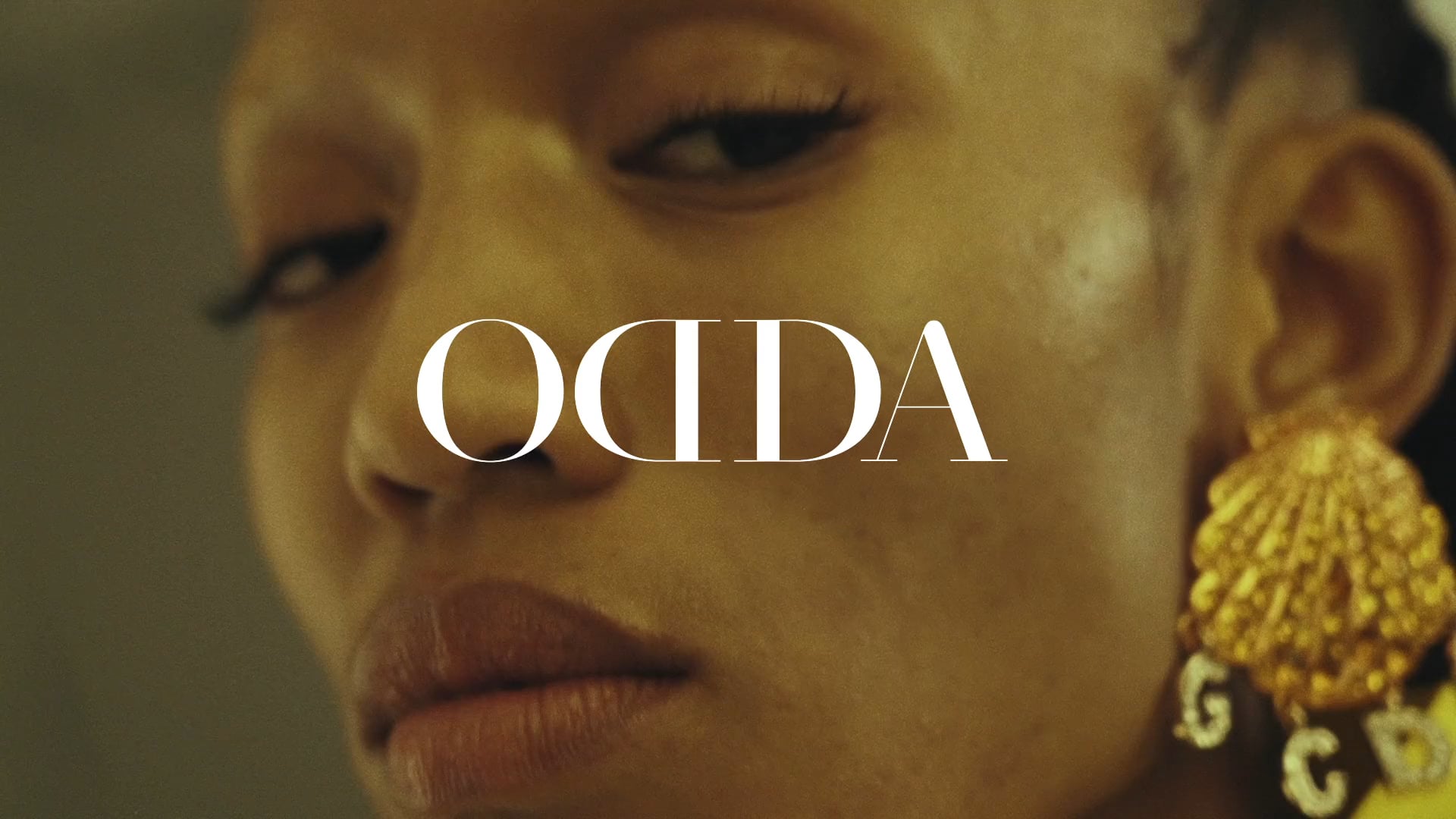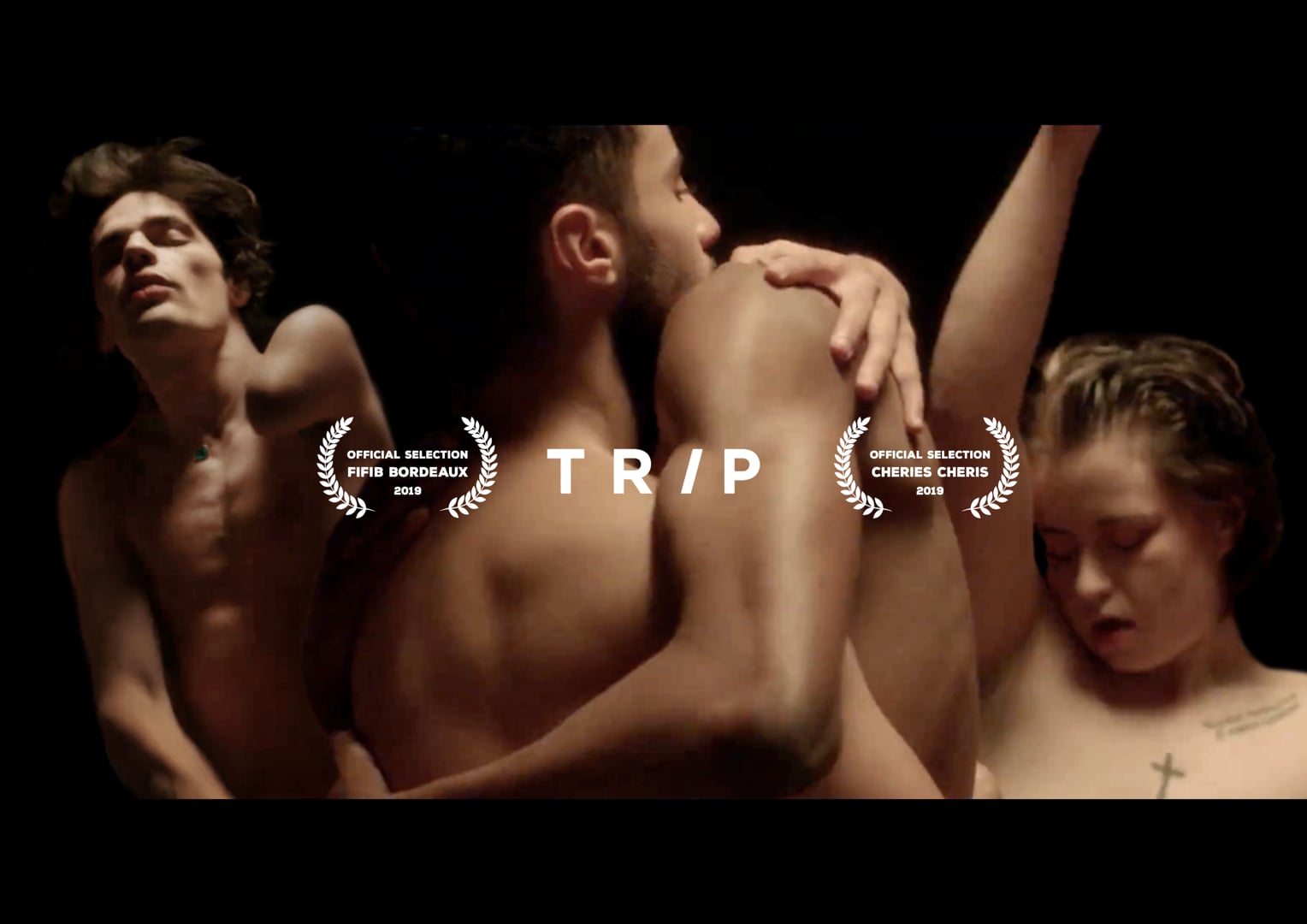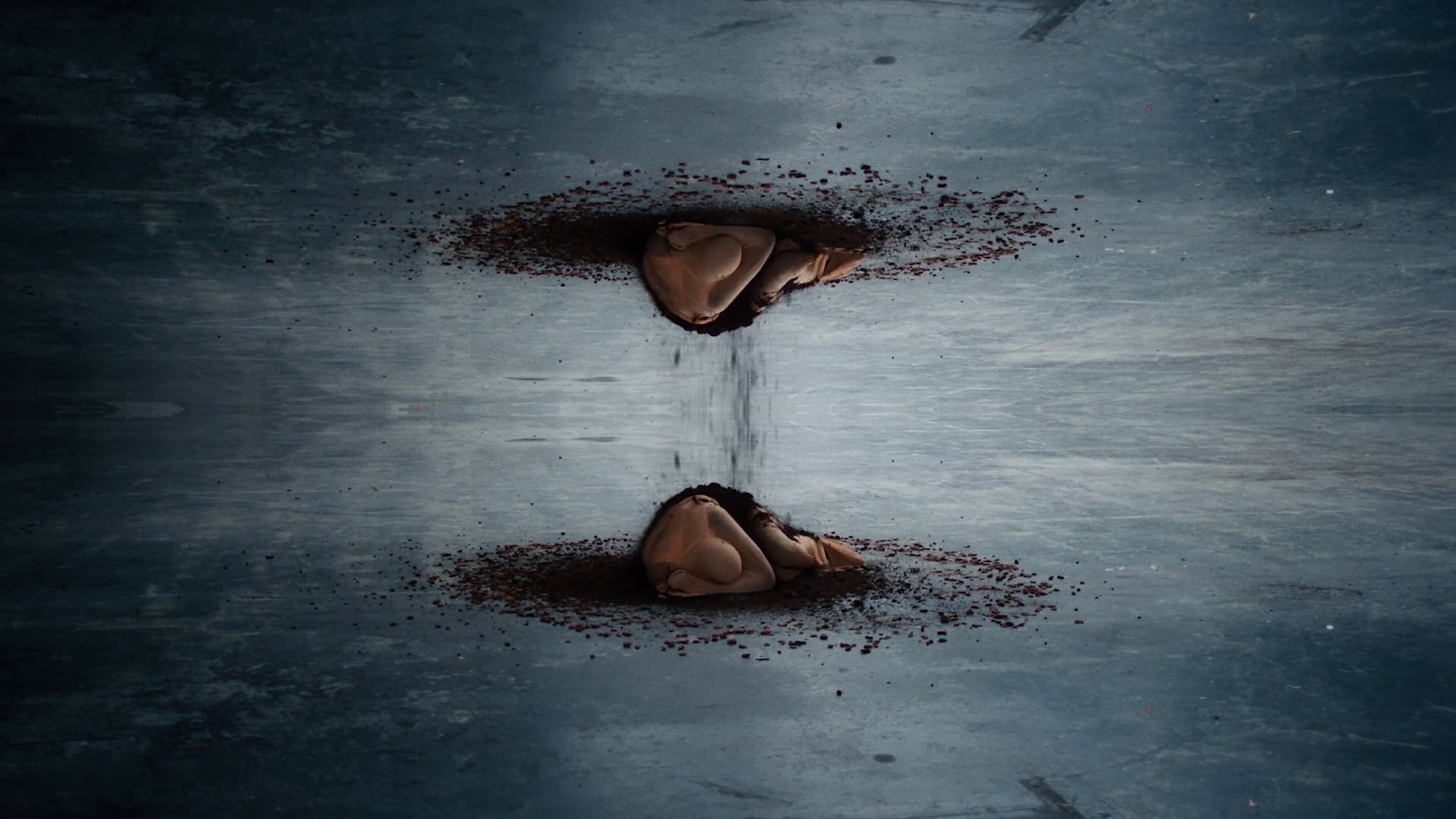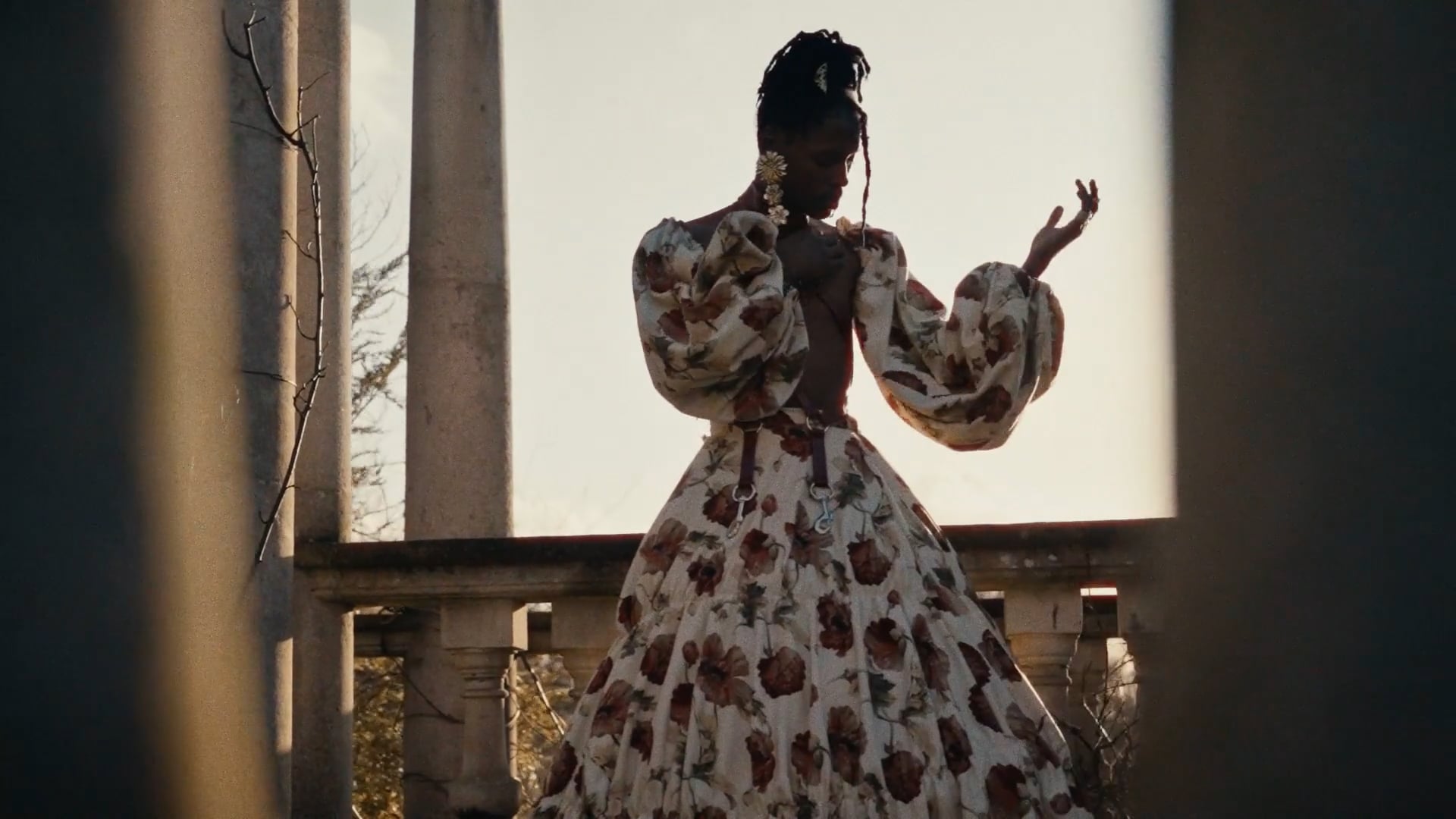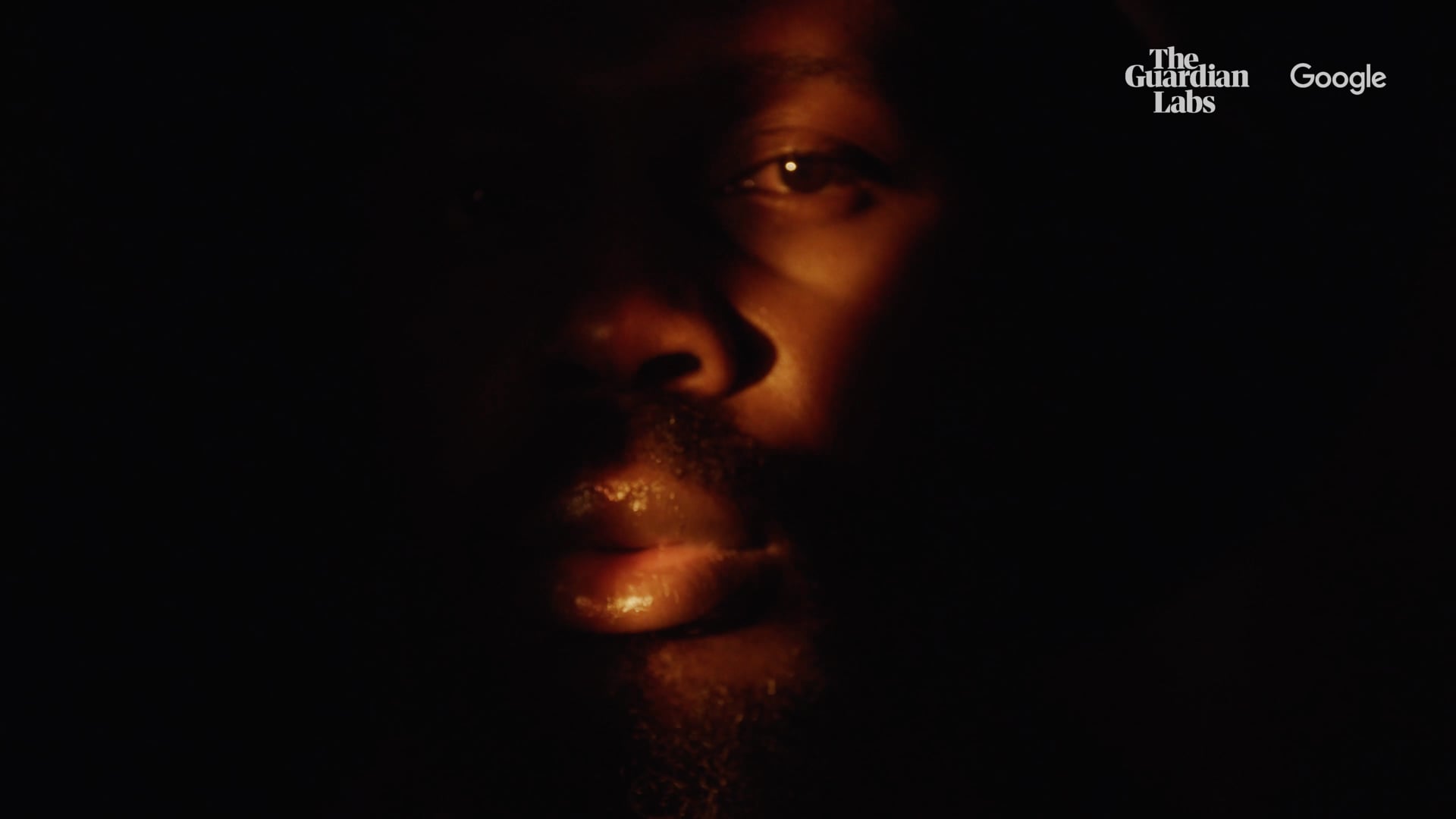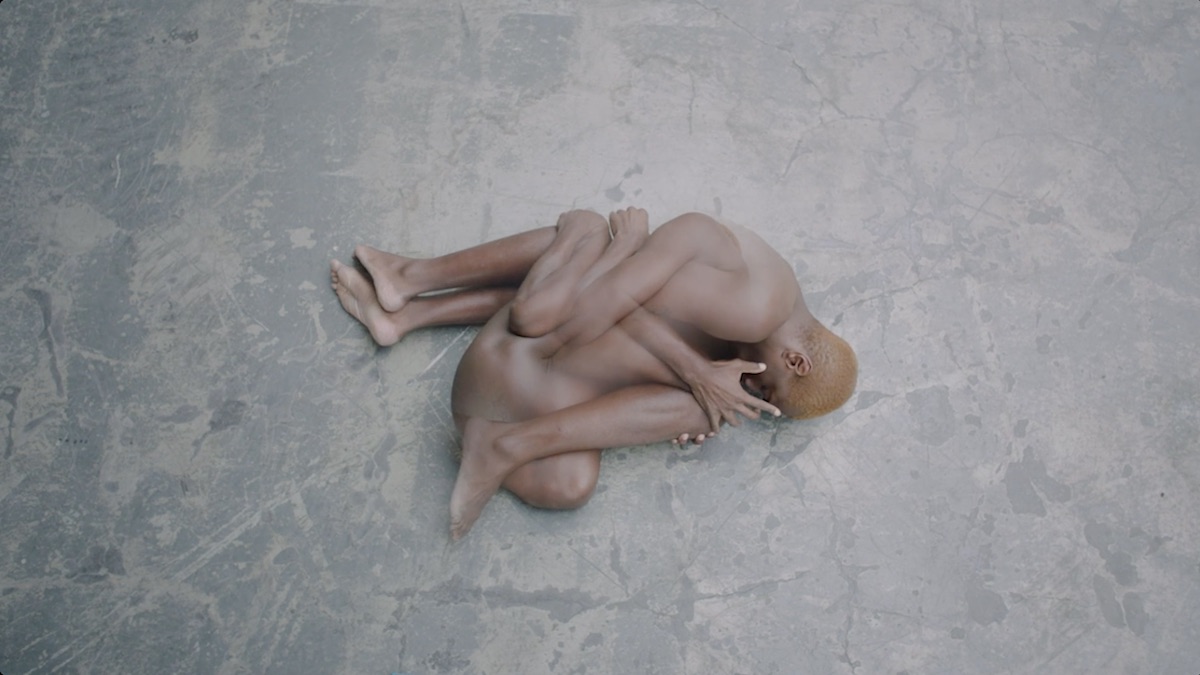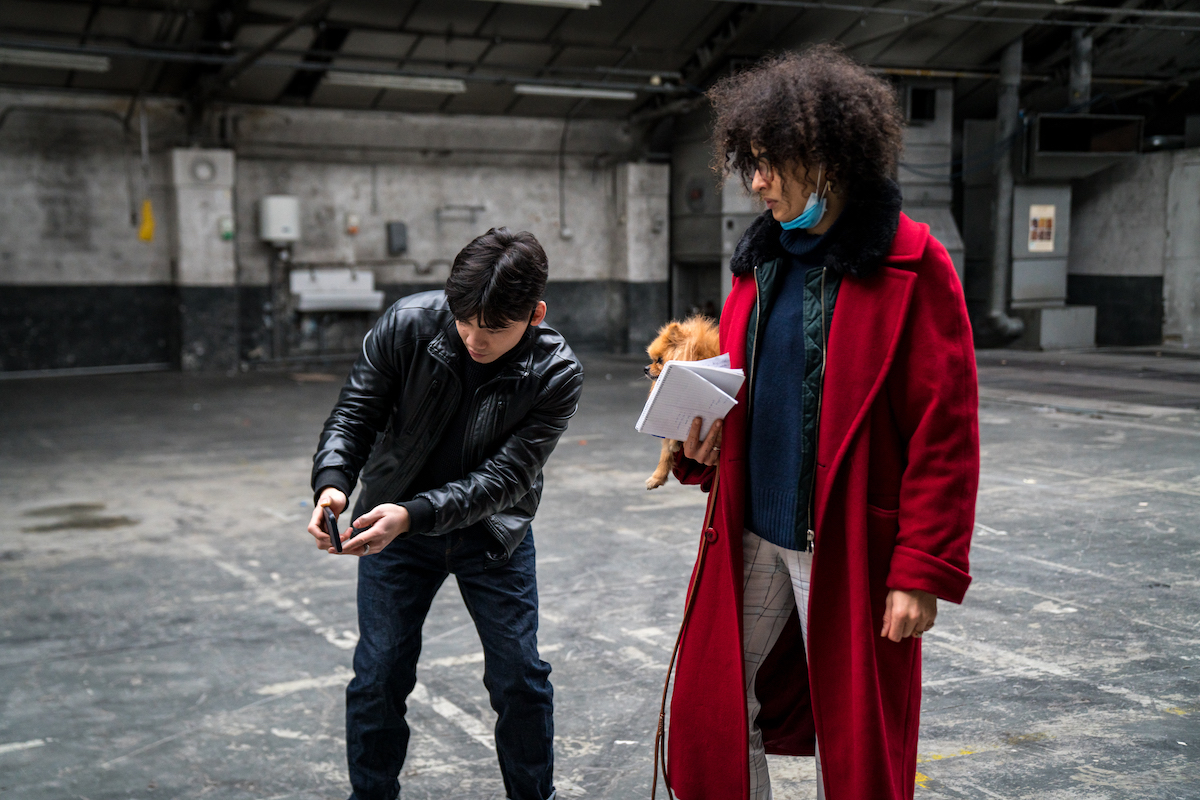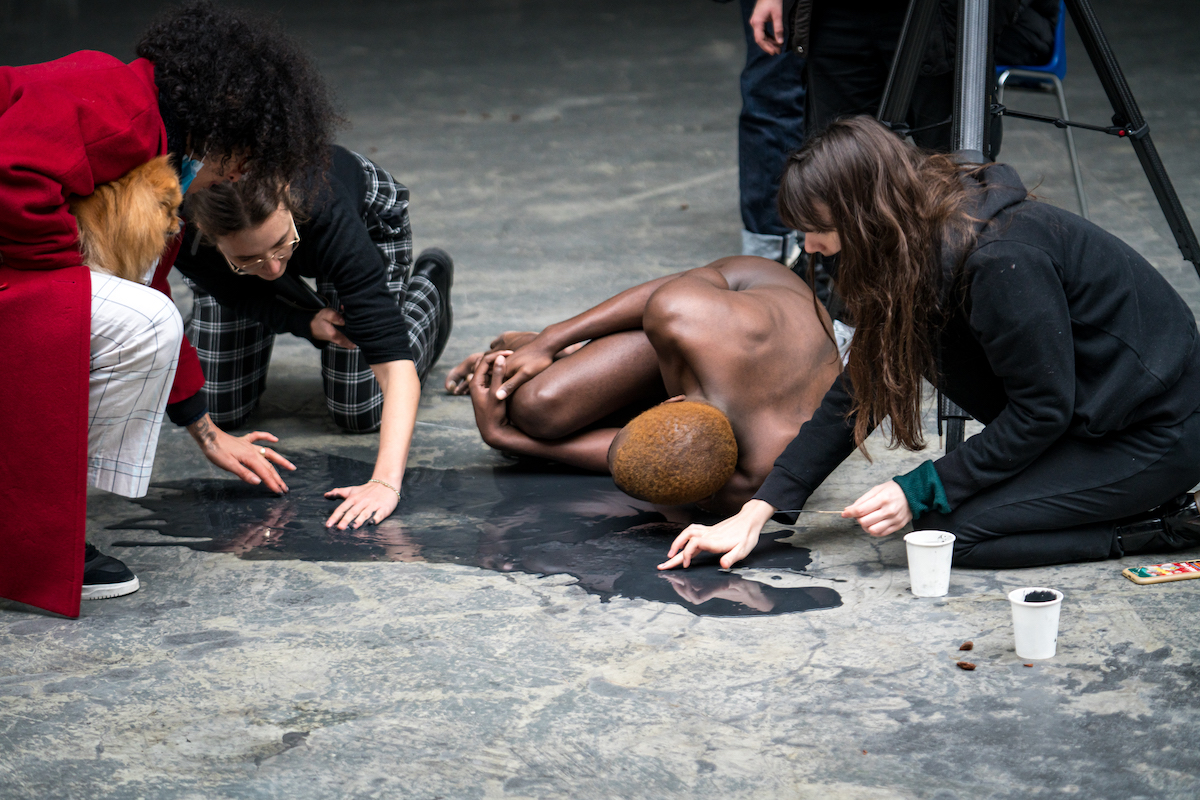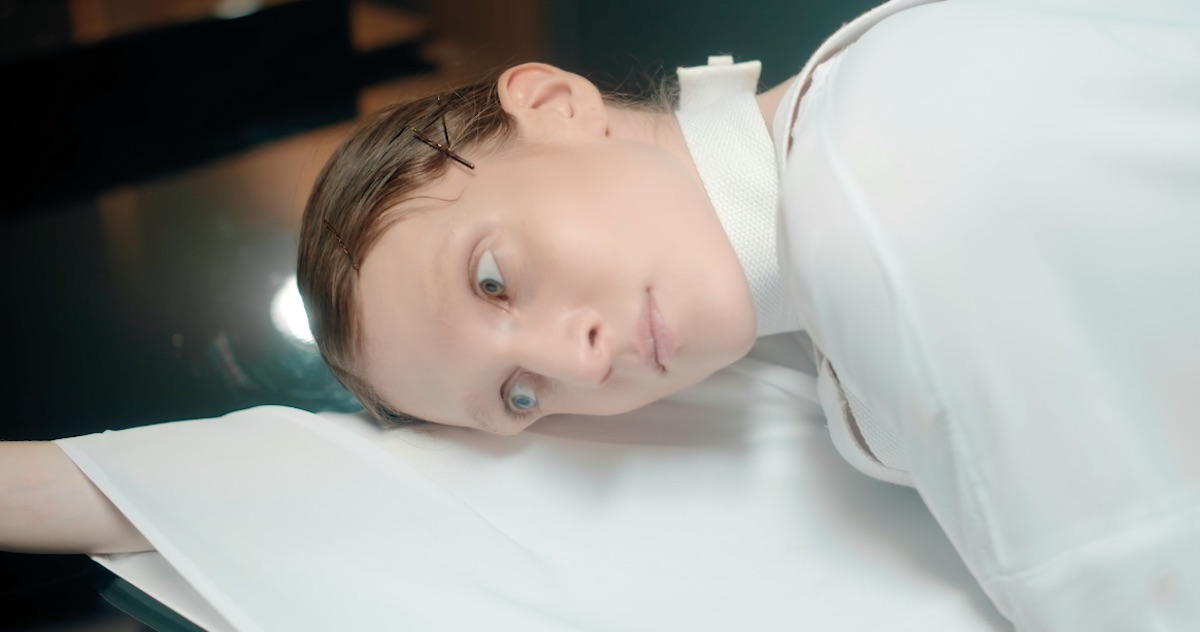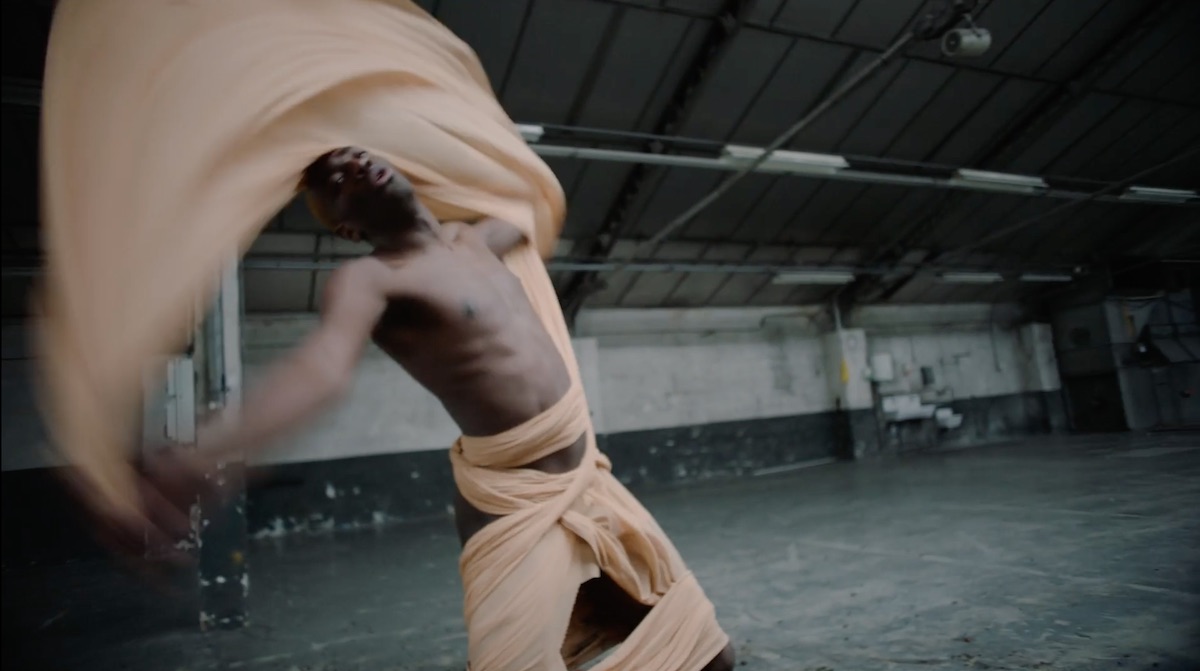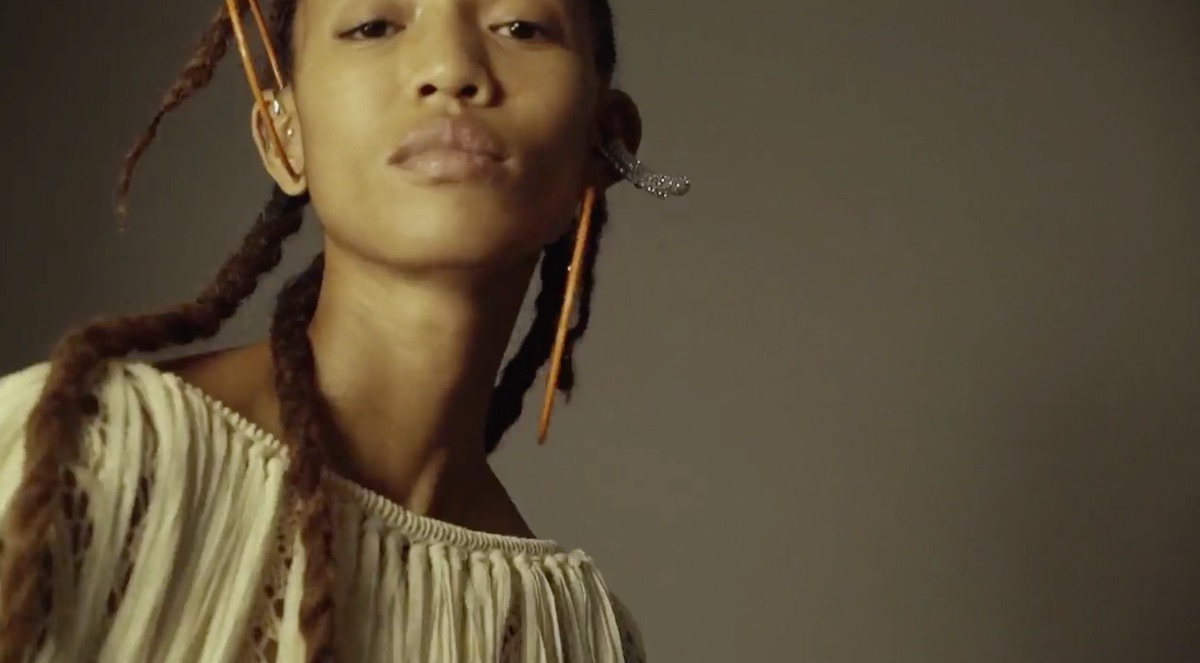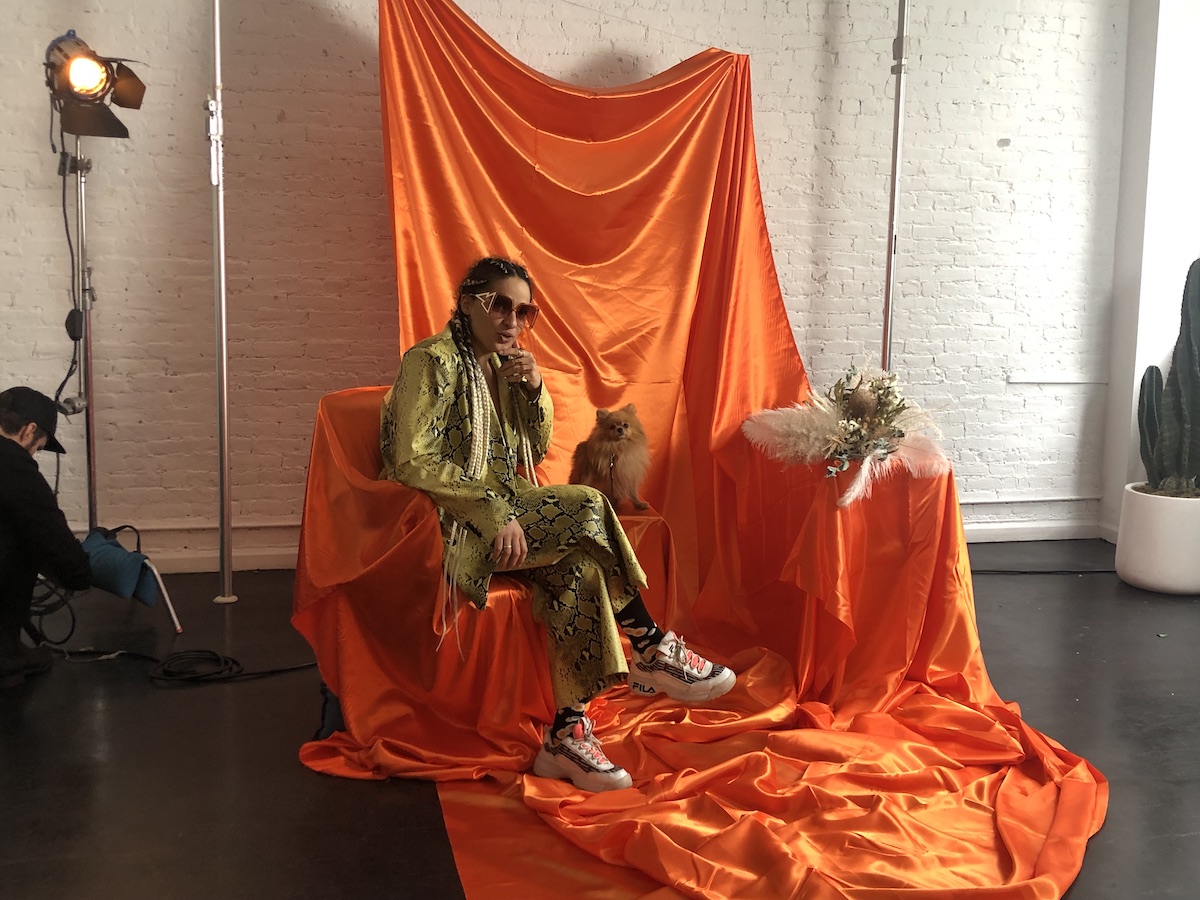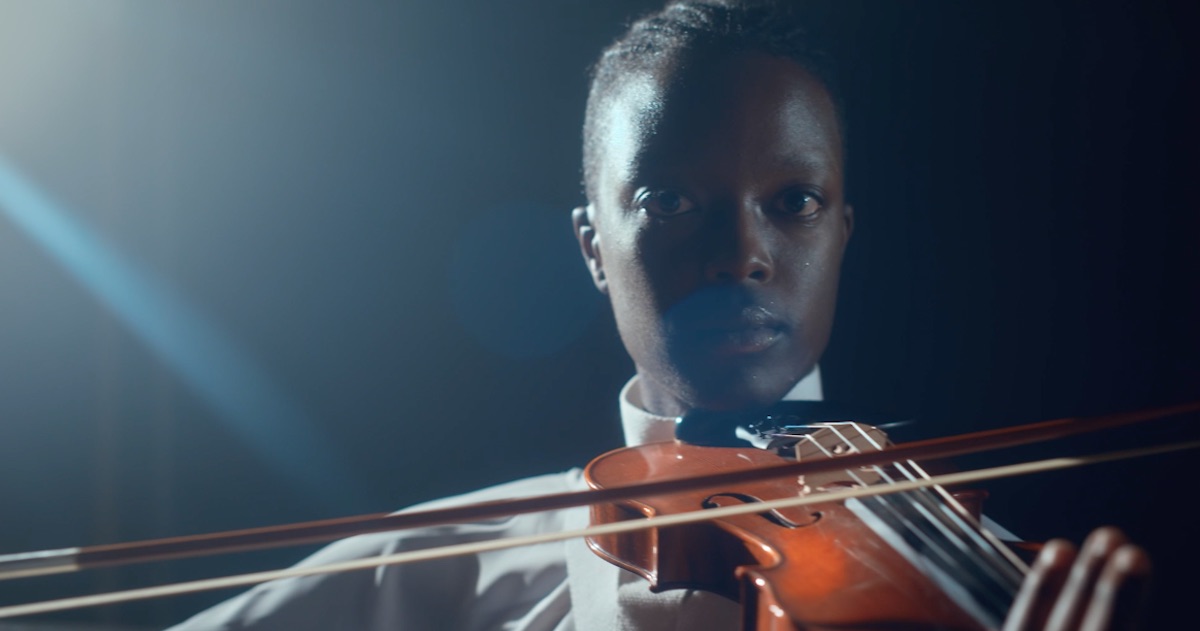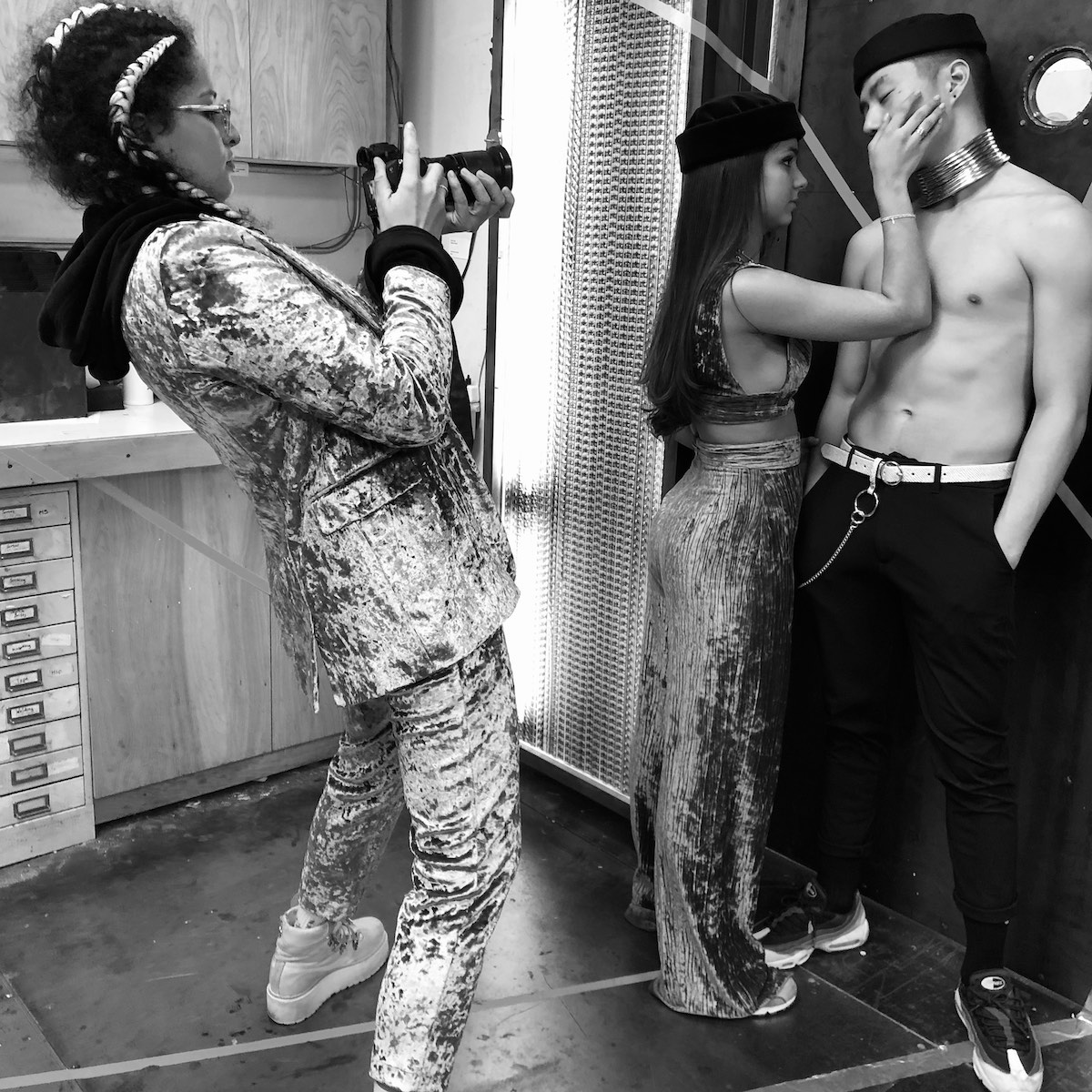Genesis
As a natural born storyteller, what was your childhood like? Do you come from a creative family?
I grew up in a remote village in the west French countryside among lush vegetation and wild animals. My mother is definitely a free spirit – she was 28 and single with three children when she decided to move from Paris, quit everything, and bought a barn on twenty acres of land. It was literally a barn, built to store tractors, with a dirt floor, no electricity, no hot water, no doors. Over the years, we built our home together.
I see my experience as very nourishing: when you are poor, you have to be creative to sustain a life in a capitalist world driven by money. Living a life that is unique, you always have to invent yourself. There is no model to follow, no rules to respect; it’s an experiment.
Despite our economic situation, we had an incredible abundance of elevated culture. My mother chose to instill philosophy and educate us to think critically. We were raised to coexist with nature and to read college-level literature such as Balzac, Dumas and Zola. My mother is an incredible writer and painter, but she never thought she could make a living from her creative talents.
As a child, I remember having a magic stick. I’d paint characters around me, that I’d animate in my mind, direct and frame. I was almost in a trance, sweating, not paying attention to the real world. I later discovered that I was actually practicing self-hypnosis, a state of hyper concentration.
Lesly and DoP San Yvin on set Genesis (WIP) © Gabrielle Cezard
You started your career in Paris as a journalist working for networks like TF1, M6 and Arte, then a TV producer. What drew you into filmmaking?
The same as my mother, I never thought I could be a creative: it seemed inaccessible. My only dream was to earn money and give my family the privilege of not worrying about how to pay for groceries. So I studied medicine for two years, then I went to law school and graduated magna cum laude in two different Masters, international business and political science.
Alongside my studies, I travelled the world with a backpack, making money however I could. I was driven by the envy of discovering other cultures, meeting people sharing their unique stories. I took my classes remotely, coming back to France just for the exams. I soon realized that I’d never be happy working in law: I loved studying it, however the idea of spending my life in this industry didn’t felt right at all. Something was burning inside me.
So I started working as a photographer for a music blog, covering festivals around France, interviewing and photographing artists. Then, I got my first internship in a production company. I knew I couldn’t afford the luxury of being an intern for too long (Paris is expensive) and my mother couldn’t financially help me, but I had balls back then and asked the producer to take me as an intern for a month and after that they could decide to continue their journey with me or not. While I was there, I developed a TV show concept and sold it to a TV channel, which is how I got my first job. I worked as a producer / editorial-chief, learning everything in the field: sitting in the edit suite, asking questions, being on set, observing directors, learning from DOPs. A year later, I directed, filmed and edited my first short documentary.
Lesly along with Julie Reali, Lara Vaillon and talent André Atangana on set Genesis (WIP) © Gabrielle Cezard
How have your multicultural roots and lived experience influenced your directing aesthetic?
My mother is French-Cameroonian and we were the only black people in the village: they actually called my mother “La Noire” – a very pejorative term. As a child, you don’t want to feel different, so I grew up being ashamed of who we were (people of colour, poor, different from the norm). When I was older, another feeling came to me, I realized how proud I could be of my experience and background. We are all different and that’s actually where I find the beauty of the world now.
I made a promise to myself to always honour my multicultural roots and depict the world as I experienced it; to share my stories and vision. The mood of the place I grew up – the feeling in the air, the rural scenery, the picturesque architecture, the vast green fields, the narrow-mindedness, the curiosity of the unknown swimming in that city – was a fertile environment to grow ideas.
I’m fascinated by human nature, so I want my work to convey emotions in a subtle way. Emotions are so precious: they’re at our core. It’s like finding a treasure, you are so excited that you want to tell everyone else. I want people to be able to see the things I see in an authentic and sincere way, with a bold aesthetic. My wild dreams drive me to direct conceptual and technically challenging projects with richly textured art direction.
To elevate the conversation and make people wonder and question things, I use dreamlike visuals and surreal symbolism. It’s a very powerful language, a visual expression that speaks to the subconscious.
Performer Regina Démina, Dictateur, Autrijus
You’re interested in telling original and surprising stories and spotlighting diverse voices: where do you find creative inspiration?
Inspiration is all around me. In my dreams, in my life, my experiences and the stories of others. In the beauty of nature, from the micro to the macro, from the bees collecting the nectar of a flower to the stars shining at night. I find beauty in everything. I have kept my sense of candid wonder from when I was a child and cultivated it as a grown-up. The world is an infinite source of inspiration for me.
I practice meditation to search for ideas that I’ll fall in love with. When you are aligned and connected to your subconscious, you can capture deeper feelings: that’s how I perfect my vision. I’m a traveller on a journey bringing back stories that should be told; I’m in constant motion, questioning myself, cultivating my identity.
I mix wisdom and intuition so they can function as a symbiotic organism. I consider life as a trajectory, and mine is certainly not a straight line! Whatever happens in your life, even if it’s not your fault, you can choose how you’ll respond to things. Happiness is a result of embracing failure and solving good problems.
Dancer André Atangana, Genesis
You also set up a creative studio and production company, Space Cowboys, together with your wife – can you tell us a bit more about the vision behind this?
Space Cowboys is a wild dream that is now actually happening. It’s an international collective of visionary creatives and supernova producers focusing on diverse voices and stories. Women-driven, our team is growing in this ‘big sister’ energy, attracting special human beings, extraordinary brains, celebrating gender diversity, BIPOC and queer talents.
My wife, Anais Ohresser, and I wanted to build the world we wanted to live in. It started with the desire to create a safe space to pursue creative excellence in a healthy environment.
As a director, in order to fully express [my ideas] and have creative freedom, I needed to feel surrounded by people who embrace the same core values: honesty, authenticity, humility, empathy and curiosity. All our talent comes from different backgrounds – we’re very inclusive and disruptive. I could have chosen the easy way to fulfil my dreams and save only my soul, but I chose the difficult path which will save my soul and hopefully the souls of a few others.
Our stories need to be told. We need representation. We need diversity. Our differences are the norm, we should celebrate them and films are the perfect starting-point to drive progress, impact change and shift worldviews.
ODDA magazine, Adesuwa Aighewi
Watching your work, it’s joyful to see queer, POC, non-binary talent given space to shine on screen; it feels like you’re creating a new normal. How important is it for you as a young and upcoming director to drive that diversity agenda forward, and what does change look like for you?
As an engaged artist, I want to shed light on the community that nourishes me and the underrepresented voices that need to be heard. Naturally, I want to play a meaningful role in moving towards a more sustainable, equitable and prosperous future. Creating positive change and making a lasting impact through our collective actions.
Growing up in the countryside, there’s limited representation. People are very closed-minded. Junior high school was the worst; I had to lock away part of myself to be as ‘normal’ as possible. A norm that I would never fit in with, no matter how hard I tried. The other kids called me terrible names, like ‘smoked ham’, referring to the colour of my skin.
Then, when the other kids start having their first crushes, I did the same just to conform, but deep down it didn’t feel right. Being gay is something out of the spectrum. The only lesbian representation I remember were masculine women, who are just one part of a larger community.
Moving to Paris was a revelation. I started roaming the streets at night and discovering underground techno parties with my best friend, who was also gay. I remember my first time at the Flash Cocotte, this iconic queer party, being amazed by all the creatures dancing and expressing their identities through incredible outfits. They became my family and lifted me up as a person and as a creative.
Now, I want to go back to my eleven-year-old self and tell her to never let her choices be dictated by others. I want to open doors for queer people to simply exist. In order to do so, I choose to give voices to those who are redefining identities and bringing awareness of the infinite possibilities of being. I want to remove every limit.
Lesly Lynch with her dog Carrie on set Google x The Guardian
The way you use the language of dance and movement in your films is so full of emotion that it’s more than choreography. What’s the appeal of movement as a medium for you?
I’m obsessed with movement and volume, I draw choreography between body, space and camera to tell modern tales. Movement is a language and a way of embodying the space. Like brush strokes on white canvas, body expression is a way to visually paint your frame. Choreography magnifies the message; it’s an organic ballet between the camera and the dancer, the ebb and flow revealing multiple layers of emotional depth. The camera moves amplify the performance and create a visual storytelling experience. Using dynamic movement creates contrast: as a result, the camera becomes a character in the story.
Movement is definitely an essence of my work exploring different elements in a fluid and lively viewing experience. It represents space and time. Dance has the power to capture the audience’s imagination, portraying a particular mood and energy.
Dictateur, Autrijus
Your latest music video, for Dictateur’s new single, Autrijus, is an ‘inclusive visual odyssey’ into space which questions the notion of gender identity: can you tell what sparked the inspiration for the video and how did you work with the band to achieve your creative vision of a genderless new world?
“It seems obvious that the notion of gender will not be part of the future of the human species”. That’s the quote behind the project. We wanted to celebrate the powerful statement of Autrijus Tang, now renamed Audrey Tang: Taiwanese hacking star, fighter of the free internet, and first transgender minister. We wanted to imagine a spaceship with a new species of non-gender humans on board, leaving Earth to embark on an adventure to a new world. Something authentic and sincere with a sci-fi twist. Blurring the lines of the binary world, showing that we are all unique. Diversity and celebration of all beauty is the essence of my work.
Lesly shooting
As well as music videos, you’ve directed a couple of documentaries: any plans to move into short films?
Definitely! It’s in my nature, I thrive on exploring new ways of storytelling and moving stories. The screen is a magic medium. It has such power to convey emotions and moods that no other art form can hope to achieve. Accomplished people rarely sit back and let things happen to them – they go out and happen to things! And that’s what I’m trying to do. Julie Réali, our Head of Studio, and I have co-written a short film, Metamorphoses, a celebration of resilience seen through the prism of a young black girl, Sasha. We have secured $40k of investment and are looking for the other half. That’s the benefit of having my own studio, I don’t need to compromise and can stay true to an idea as long as what happens stimulates people’s imagination. I want to make films that are both dramatically appealing to a wide audience and contains the kind of truth and perception which you associate with great literature.
Interview by Selena Schleh
With thanks to Emma Reeves for the introduction (emma@emmareeves.com)
Space Cowboys Studio website
Lesly Lynch website
